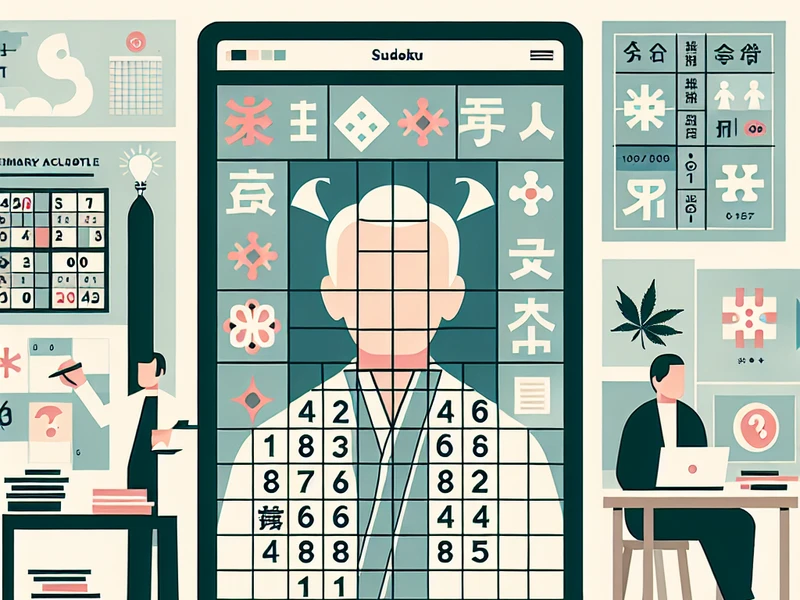History and curiosities about Sudoku: from its origins to today


The Origins of Sudoku: A Journey into the Past
Contrary to what many believe, Sudoku did not originate in Japan. Its origins date back to the 18th century, when the Swiss mathematician Leonhard Euler devised the “Latin square,” in which numbers or symbols do not repeat in rows and columns.
However, modern Sudoku took shape much later. In the 1970s, American Howard Garns, an architect passionate about puzzles, first published a game called “Number Place” in the magazine “Dell Pencil Puzzles & Word Games”. This game was then introduced to Japan in the 1980s by the publisher “Nikoli”, which gave it the name we know today: “Sudoku”, an abbreviation of “Suji wa dokushin ni kagiru”, which means “the numbers must be used only once”.
The Global Rise of Sudoku
Sudoku experienced explosive growth starting in the 2000s, when Wayne Gould developed a program to generate puzzles and distributed them to British newspapers. The game quickly became a global phenomenon.
Since then, Sudoku has started to appear everywhere: books, applications, websites, and even international tournaments. Today, it is possible to tackle puzzles of every level of difficulty, from those for beginners to extremely complex ones, such as the infamous “Al Escargot,” considered one of the most difficult puzzles ever created.
Sudoku Curiosities: Surprising Facts
If you think you know everything about Sudoku, get ready to discover some interesting facts:
Not just numbers: in addition to the numbers 1 to 9, there are variants with letters, symbols, or images.
The largest Sudoku in the world: The Guinness World Record has recognized a giant Sudoku created in the Czech Republic. This grid measured 8 meters by 8 meters and contained over 600 cells!
International tournaments: Every year, the World Sudoku Championship takes place, an event that attracts the best players from around the world. Participants must solve grids in record time and under pressure.
Cognitive benefits: Besides being fun, Sudoku is known for its cognitive benefits. It helps improve memory, concentration, and logical skills. Many experts recommend including it in daily activities to keep the mind sharp.
The Future of Sudoku: Innovation and Digital Challenges
With the advent of technology, Sudoku has found a new home in the digital world. There are numerous apps and online platforms where enthusiasts can challenge themselves and improve their skills. Some advanced software even allows users to create custom grids and participate in virtual competitions.
But despite the digital evolution, the charm of paper Sudoku remains intact. There is something special about solving a puzzle with pen and paper, scribbling and erasing until the right solution is found.
Conclusion
Sudoku is not just a number game: it is a global phenomenon that brings together people of all ages and cultures. From its origins to modern successes, its evolution tells a fascinating story full of curiosities. Are you ready for your next challenge?
To discover more interesting content and to practice with new patterns, visit our site and let yourself be inspired!


